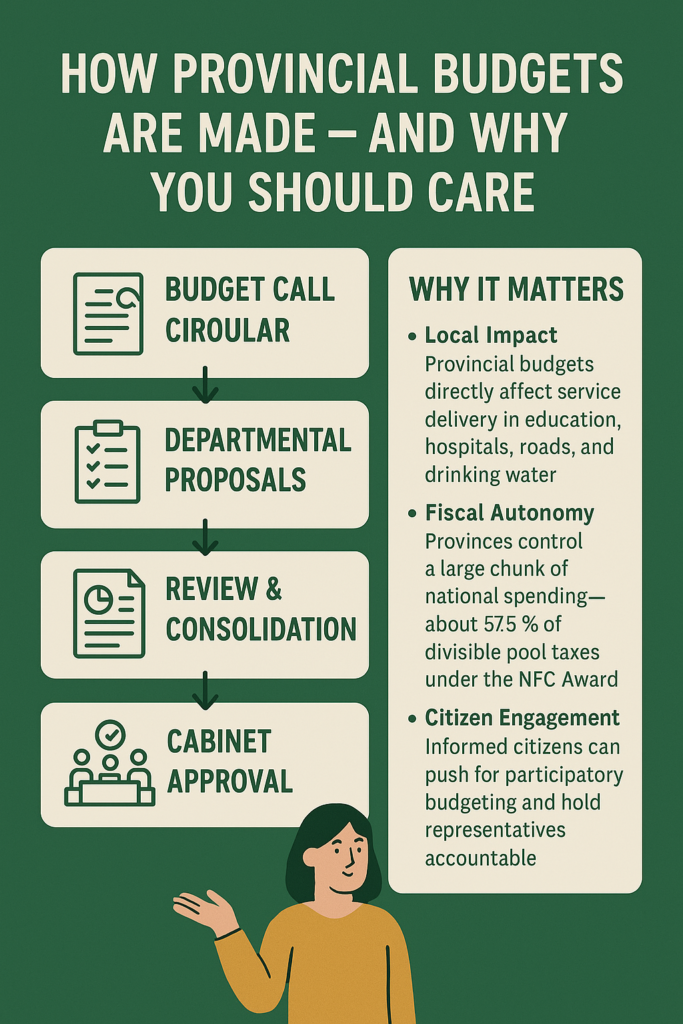
Since the 18th Amendment, provinces in Pakistan have assumed greater responsibility for delivering health, education, agriculture, and local infrastructure. This shift makes provincial budgets even more critical for citizens. But how are these budgets made, and why should the average citizen care?
The Budget-Making Process
- Budget Call Circular (BCC): The finance department issues a BCC to line departments, requesting proposals and estimates.
- Departmental Proposals: Each department prepares its budget based on policy priorities, past performance, and ongoing projects.
- Review & Consolidation: The finance department reviews submissions, aligns them with fiscal limits, and consolidates into a draft budget.
- Cabinet Approval: The draft is presented to the provincial cabinet for policy vetting.
- Legislative Approval: The budget is tabled in the provincial assembly for debate, possible amendments, and final approval.
Why It Matters
- Local Impact: Provincial budgets directly affect service delivery in education, hospitals, roads, and drinking water.
- Fiscal Autonomy: Provinces control a large chunk of national spending—about 57.5% of divisible pool taxes under the NFC Award.
- Citizen Engagement: Informed citizens can push for participatory budgeting and hold representatives accountable.
Provincial budgets shape our everyday experiences—from the condition of roads to school quality. Understanding and participating in the budget process is a democratic right and responsibility.
